When you purchase through links on our website, we may earn a commission. Affiliate disclosure.
Introduction
Welcome to a comprehensive exploration of the UK’s electric bike laws in 2023! If you’re interested in e-bikes, whether as a hobbyist, commuter, or fitness enthusiast, you must be aware of their use regulations. With their growing popularity, understanding these laws has become more important than ever.
Definition of an Electric Bike
Electric bikes, also known as e-bikes, are bicycles equipped with integrated electric motors that can be used for propulsion. But not all e-bikes are created equal. In the UK, an e-bike must comply with specific criteria to be legally classified as a ‘Pedelec’ (EU category of Electrically Assisted Pedal Cycles – EAPC). These conditions stipulate that the motor shouldn’t be able to propel the bike when it’s travelling more than 15.5mph, and its power must not exceed 250 watts.
Age Restrictions
When it comes to age restrictions, UK law is quite straightforward. You have to be at least 14 years old to ride an EAPC. So, no matter how eager your little ones might be to hop on, they’ll have to wait until they’re in their early teens.
Equipment and Specification
An EAPC in the UK also needs certain essential features, such as pedals that propel it, clear indications of the manufacturer, the motor’s power output, and the bike’s maximum speed. If your e-bike meets these specifications, you can ride it on cycle paths and wherever traditional bikes are allowed.
UK Legislation for E-bikes
UK law classifies Electric bikes as regular bicycles if they meet the above criteria. However, those that don’t meet these conditions are regarded as mopeds or motorcycles and are subject to additional laws and requirements. The latter category includes speed pedelecs, e-bikes capable of speeds over 15.5mph, and e-bikes with a motor power exceeding 250 watts.
UK Licensing, Tax, and Insurance
For the standard e-bikes (those within EAPC regulations), you won’t need a license and have to register it, pay vehicle tax, or have insurance. However, you will need these for e-bikes that fall into the moped or motorcycle category. These e-bikes must also be ‘type approved’ by the manufacturer to ensure they meet EU safety standards.
The Highway Code for E-bikes
Like all other road users, E-bike riders must follow the Highway Code. This means you must stop at red lights, use lights at night, and give pedestrians the right of way, among other regulations. For your safety, it’s also recommended that you wear a helmet, although it’s not legally required.
Penalties for Non-compliance
Riding an electric bike that does not meet the EAPC rules on public roads without the correct documents is illegal and could result in penalty points on your licence, a fine, or even a vehicle seizure. The same goes for breaking the Highway Code.
E-bike Usage Statistics in the UK
According to recent statistics, the use of electric bikes in the UK has surged. As of 2023, over a million Britons are thought to own an e-bike, reflecting a growth of nearly 30% since 2020.
Health and Environmental Benefits
E-bikes are not just fun to ride; they’re also a great way to exercise and help reduce carbon emissions, promoting a healthier and more sustainable lifestyle. Riding an e-bike can burn almost as many calories as regular cycling, and it’s an excellent option for those who may need a little assistance on their commute.
Cost of Ownership
The cost of owning and maintaining an e-bike in the UK is significantly less than that of a car. With no fuel costs and low maintenance requirements, e-bikes are a cost-effective mode of transport.
UK Government’s Stand on E-bikes
The UK government supports e-bike usage, as it aligns with their 2050 net-zero carbon goal. They’ve also recognised e-bikes’ potential for easing traffic congestion in urban areas and have begun providing incentives to encourage e-bike adoption.
E-bike Retailers in the UK
The UK has seen a significant increase in e-bike retailers, reflecting the growing popularity of these bicycles. Major retailers include Halfords, Evans Cycles, and Pure Electric, each offering various e-bikes to suit different budgets and needs.
Future Trends of E-bikes in the UK
The future of e-bikes in the UK looks bright. We expect longer battery life, lighter bikes, and more sophisticated models as technology evolves. Additionally, as e-bikes become increasingly mainstream, prices will likely continue to become more competitive, making them an increasingly viable option for a broader range of people.
Conclusion
E-bikes in the UK are more than just a trend; they’re a sustainable, cost-effective, and healthy mode of transport here to stay. As laws and regulations continue to develop, e-bike owners and enthusiasts must stay informed. So whether you’re an e-bike veteran or just starting your journey, understanding UK e-bike laws is essential for a safe and enjoyable ride.
This article is just a guide. We highly recommend checking with local authorities or legal experts for further clarification about UK electric bike laws in 2023. Stay safe, follow the rules, and happy cycling!


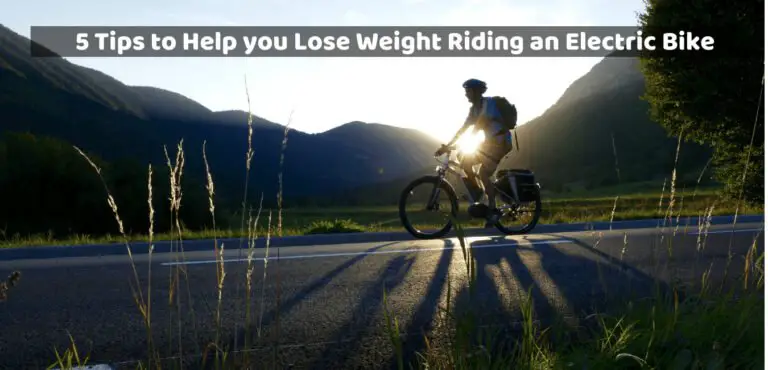

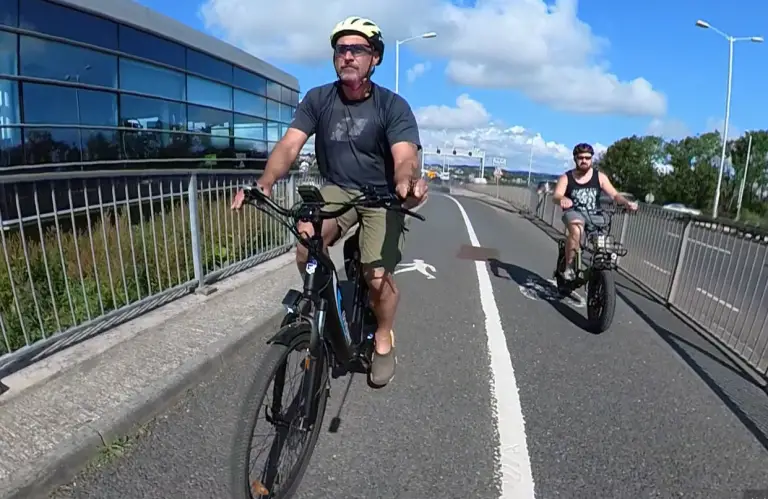
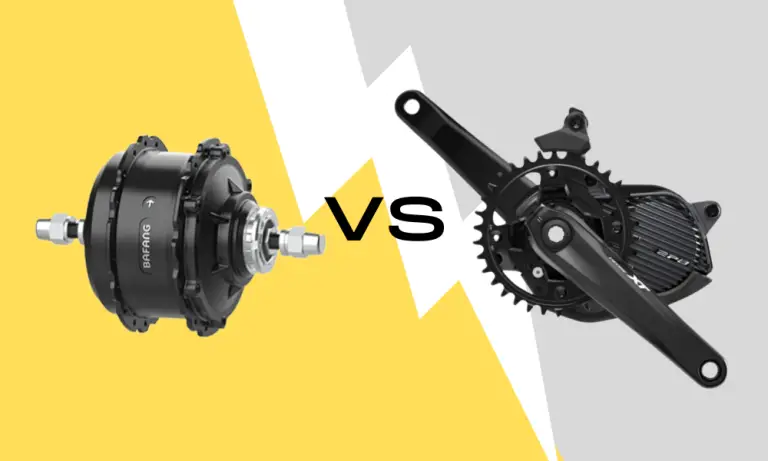
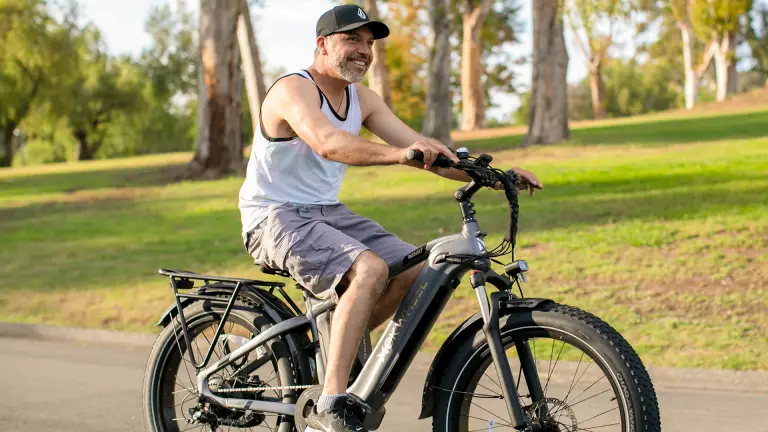
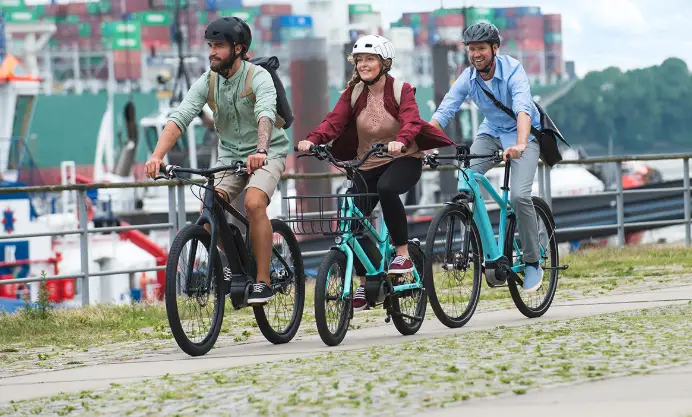
Please, if you’ve no experience with legal issues, do not write articles about it.
Simple things like:
“EU law EN15194”
– EN15194 is not a law, it’s a standard. A non-enforceable standard I might add.
“The maximum permissible power output is 250w”
– No, the maximum rated nominal power is 250w. How things are calculated is described in EN15194, which refers to quite usual european measurement standards. TLDR: It has to do with temperature equilibrium at a certain wattage. It has nothing to do with (peak) output itself.
“The minimum age for using an electric bike is 14 years of age. ”
– While true, this does not come from EN15194
“while the police do not have the resources or necessarily the inclination to stop and test every electric bike they see”
– The max safe equilibrium temperature required for max nominal wattage measurement is not made public by most manufacturers. As such tests need to be done using “generally accepted standards”, it’s basically nearly impossible for the police to validate if a motor is 250w or 500w for example. Only really excessive motors-users can practically be prosecuted.
“If you were riding home from the pub after a few drinks you would be charged with drink driving, even worse, if you were to fatally injure someone then you could potentially be facing up to 14 years in Prison.”
– In most EU countries, technically bike users are not excluded from these statues either.
“There are also some companies that sell, for example 1000w hub motor kits, with a 250w limiting plug on the controller. This in itself is not sufficient, in the eyes of the law as the bike can easily be unrestricted in a matter of seconds.”
– The amount of technical time required is not relevant at all. Even if’s mostly hardcoded, you cannot arbitrarily change either the rating or maximum nominal wattage.
“I have come across a lot of people who feel that 250w is not enough power to assist them comfortably”
– Most 250W nominal motors are 600-800W peak though.
Thank you for your detailed comment, and all the points you have clarified. Much appreciated.
Already, for many years now, road safety has been about sensible considerate driving. We all know that a decent ammount of acceleration can be safer for getting out of the way of other people both pedestrians and motorists. My point is that safety isn’t about 250 watts versus 500 watts and it never will be. So how should legislation work ? Just make the electric bike riding law work the same way as all the other categories. How many of us cyclists have been over the speed limit on an ordinary bike ?! Its all about safety, attitude and common sense; with or without an electric motor. 500watts and 18 mile per hour would seem reasonable and encourage even more uptake than we are already seeing.
Happy Riding, Tim.
The Law needs to be overhauled it ridiculous I’ve just had my ebike Seized due to not knowing the law, I know ignorance is not a defence but they should do a national campaign to inform the public they are pushing greener vehicle’s, but making it harder for Joe public to go greener or making it financially impossible for the low wage workers there needs to be a TV, & Social media campaign . I’ve started a Facebook group to warn The public https://www.facebook.com/groups/3202478370040588/?ref=share
how fast is a bike allowed to go , down a steep hill?!
You can go as fast as you like, as long as the electric assist cuts-out at 15.5mph.
Hi Rob and Tony
I’m afraid I can’t see why there should be any kind of a restriction in the power output! It’s about restricting the speed while using roads isn’t it? At the end of the day, it is down to the rider to stick to speed limits and if it’s 15.5 Mph then stick to it on the roads, just no need to faster. Feels a bit big brother to me. People breaking any laws a prosecuted and the same should apply here.
Also, as I understand it (Correct me if I’m wrong) the power output can be adjusted can’t it?
Paul
Hi Paul,
I’m not a big fan of the laws as they stand, I feel 15.5mph is a bit on the slow side, maybe 20mph would be more realistic (as in the US). Power output can only be adjusted on factory produced e-bikes up to the 250w maximum, although most ‘legal’ e-bikes produce closer to 500w when under load (in full power mode). A reasonably fit road cyclist can maintain 20-25mph on the flat (even more with a tailwind), so I think a 20mph assisted limit for e-bikes would be reasonable. Research also suggests that more people would consider using an electric bike for commuting if the assisted speed was slightly higher.
Tony
Car enthusiasts are allowed to buy a Lambo but required to drive it at the legal driving limit. e-bike enthusiast should be able to ride 2000w if they like as long as they respect the speed limit for a bike. But how do they actually define that? Some cyclist can go faster without a motor than I can with a motor. Should it be 25km/h in town for and as fast as you go everywhere else? As long as you respect national speed limits right? This issue won’t be easy to resolve…
I would vote for a sensible 500 watt at 18 mph
Regards Ted
200W is a respectable output for a regular cyclist, maintaining 250W is really pretty decent over a distance. An ebike provides this for “free”, on top of the cyclist’s own contribution.
In so far as ebikes enjoy the same light legislative treatment as unassisted bikes, I think it is reasonable that their performance remains within a similar envelope to that of a regular able cyclist – and as things stand this is so.
If there is a market for greater motorised assistance that’s fine, but let’s not pretend such machines then fit in the same category. I think it would be a huge mistake for current ebikes to open up a greater performance advantage over unassisted bikes than they already enjoy, since that will stretch the legislative framework beyond its endurance.
I couldn’t agree more with your comments regarding wattage. Over the last 50 years I have cycled around most of the world, including rides across Tibet, Turkey and Eastern Europe. I gave up cycling because my knees were shot and couldn’t take the loads on them when going on a fully loaded tour which I love. Initially I tried a street legal system for an ebike but there simply wasn’t enough power to relieve the strain on my knees. So I bought a Bafang 1000 watts conversion kit as it was supposed to be more robust than the lower wattage units. It lived up to expectations and is great for getting off the road into the backcountry. When I got my conversion kit it was like I was reborn and I could go back to doing the things I loved and it has the power to pull a single wheel trailer when touring so that my wife (who doesn’t have knee problems) can ride without baggage. I only use extra power when I notice the strain on my knees is getting to be a problem and don’t ride it like a motorcycle when on the roads. But I always worry about getting “caught” and hope that if I do, the police will have some common sense. Unfortunately common sense isn’t always common and a better approach would be to get rid of these ridiculous low wattage limits. After all, isn’t the name of the game to get more people out on their bikes.
Hi Rob,
Thanks for your comment. I couldn’t agree more. I’ve done conversions for people with numerous health issues and having an e-bike has changed their lives for the better. Most of my customers have tried factory produces ‘legal’ e-bikes and found the power produced just isn’t enough. The government need to realise that the current laws are actually discriminatory – I think a 1000w power limit with the speed capped at maybe 20mph would be more than acceptable.
All the best,
Tony